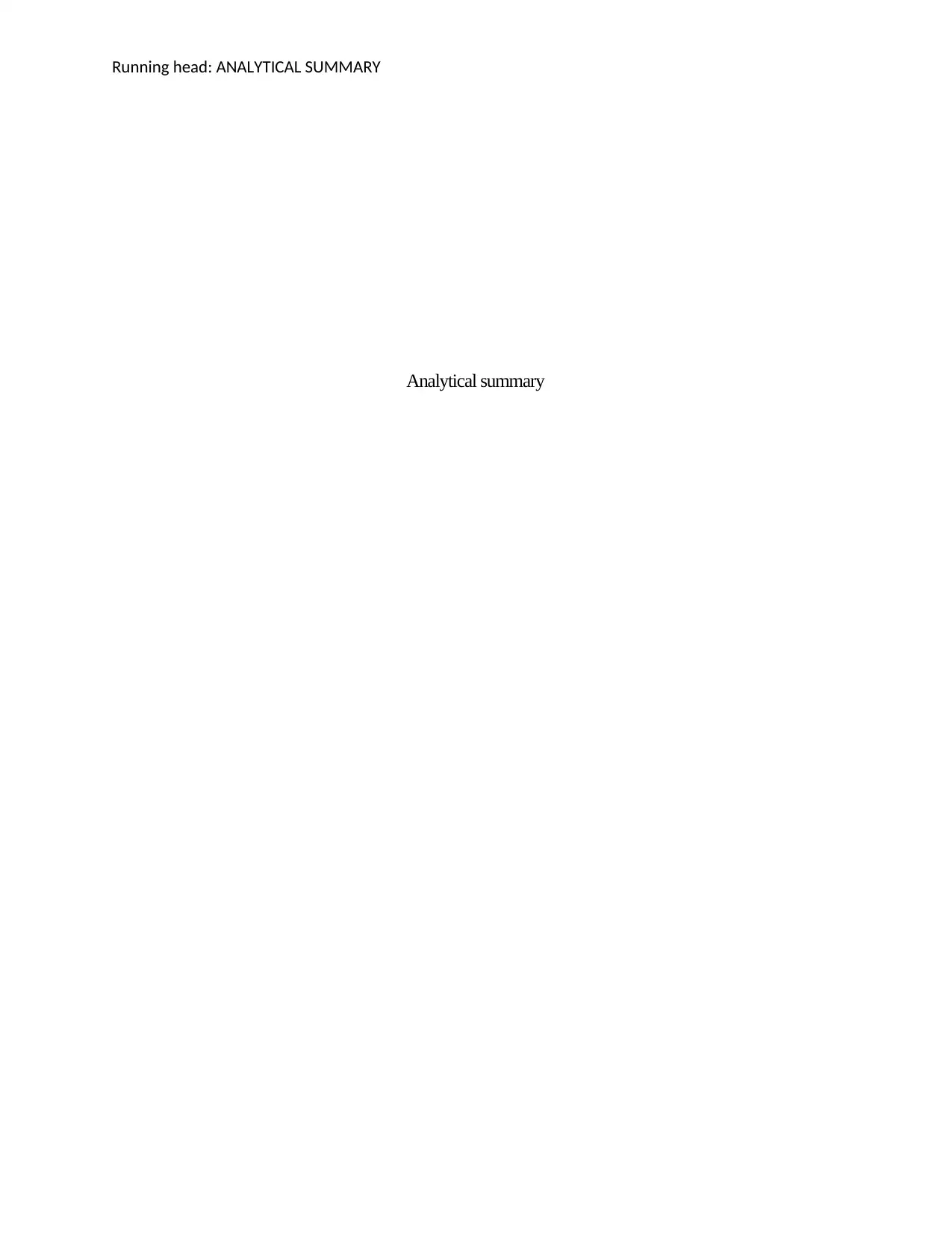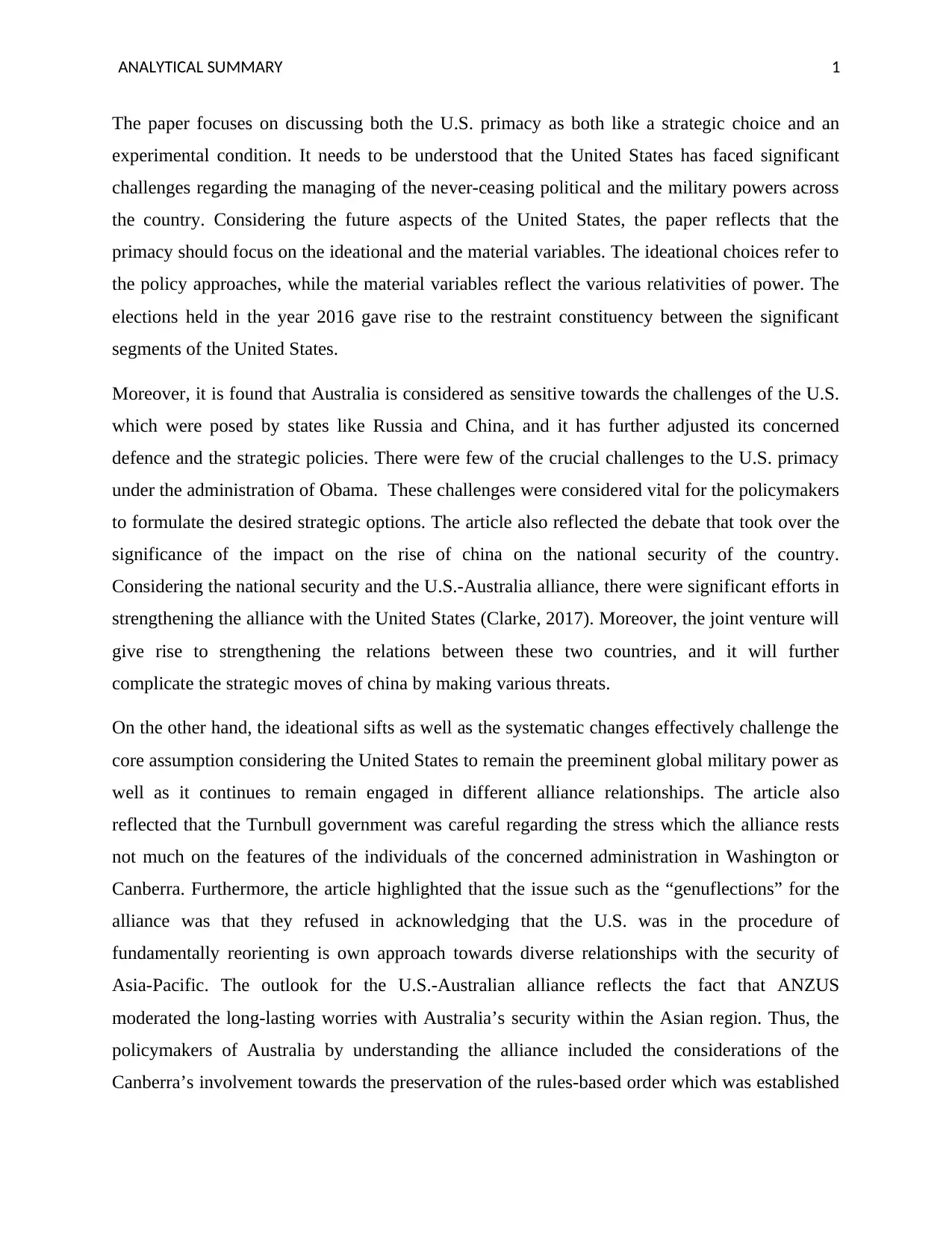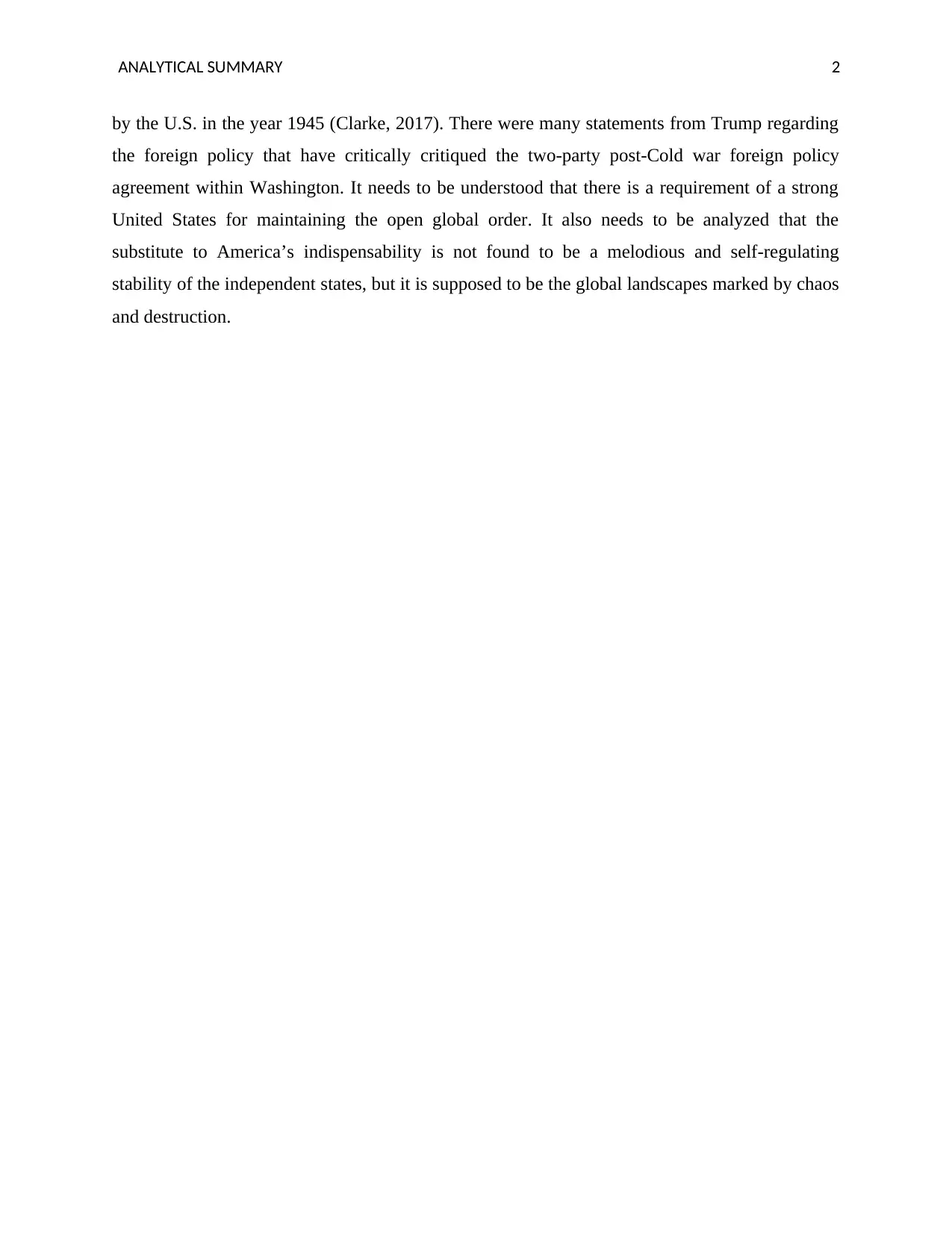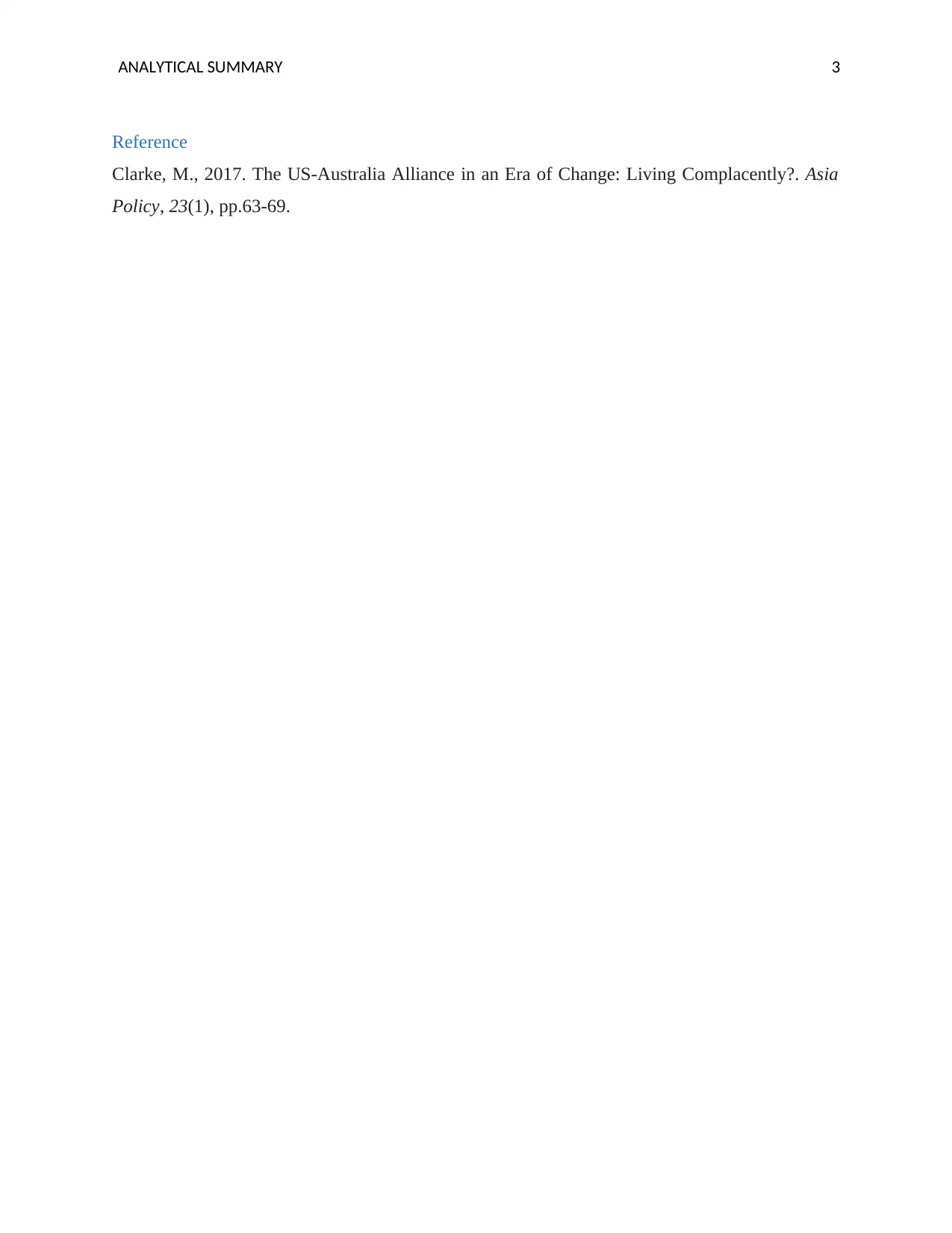Political Science Report: U.S.-Australia Alliance in a Changing World
VerifiedAdded on 2022/08/29
|4
|592
|14
Report
AI Summary
This report provides an analytical summary of the U.S.-Australia alliance, examining its strategic choices and empirical conditions within a changing global landscape. It discusses the challenges the United States faces in managing its political and military commitments, as well as the rise of a "restraint constituency." The report explores Australia's perspective, highlighting its sensitivity to U.S. challenges and its adjustments in defense and strategic policies. It analyzes the impact of the Obama and Trump administrations on the alliance, including the importance of strengthening relations in the face of rising powers like China. Furthermore, the summary reflects on the alliance's role in maintaining the rules-based order and addresses the ideational shifts that challenge the U.S.'s preeminence. The report references Michael Clarke's work, examining the alliance's future and the need for the U.S. to maintain an open global order to avoid chaos.
1 out of 4








![[object Object]](/_next/static/media/star-bottom.7253800d.svg)